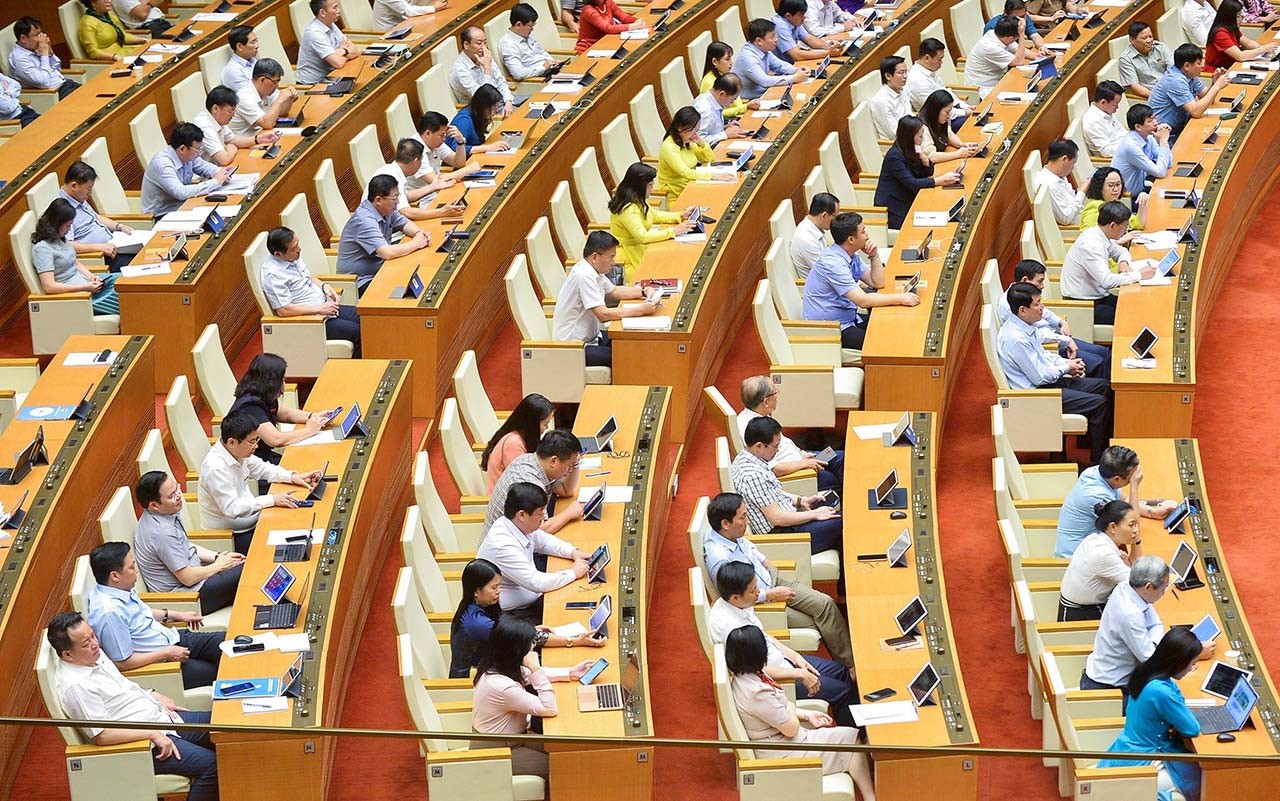 |
| National Assembly deputies meeting in the Hall. |
In the morning , National Assembly deputies discussed in the hall the draft Law on Housing (amended). The session was broadcast live on Vietnam National Assembly Television.
In the afternoon , National Assembly deputies voted to pass the Resolution on approving the 2021 state budget settlement and the Law on Prices (amended);
The National Assembly also listened to Minister of Construction Nguyen Thanh Nghi, authorized by the Prime Minister, present the Report on the draft Law on Real Estate Business (amended);
The National Assembly also listened to Chairman of the National Assembly's Economic Committee Vu Hong Thanh present the Report on the examination of the draft Law on Real Estate Business (amended).
Then, the National Assembly discussed in groups about this Law project.
Regarding the draft Law on Housing (amended) , on the morning of June 5, on behalf of the Prime Minister, speaking at the Hall, Minister of Construction Nguyen Thanh Nghi emphasized that the draft Law consists of 13 Chapters with 196 Articles.
Compared to the 2014 Housing Law, the draft Law (amended) has increased by more than 13 Articles; of which 07 Articles in the current Law are abolished (Article 98, Article 124, Article 130, Article 142, Article 143, Article 157, Article 172), 47 Articles remain; 104 Articles are amended and supplemented; 34 new Articles are added; 11 Articles are legalized from Decree. The contents of the draft Law on Housing (amended) have closely followed and specified 08 groups of policies that the Government submitted when proposing to develop the Law on Housing (amended).
The development of the Housing Law (amended) aims to promptly institutionalize the Party's guidelines and policies and the State's policies in developing housing for the people, especially low-income people and the poor, who are unable to create housing according to the market mechanism.
Amend and perfect the provisions of the 2014 Housing Law to suit the actual situation, remove existing problems and limitations, ensure constitutionality, consistency and synchronization between the provisions of the Housing Law (amended) and other relevant laws.
Compared to the 2014 Housing Law, the draft Housing Law (amended) has a number of new points such as: Combining a number of Articles on housing development programs and plans in different chapters of the current Law and legalizing a number of contents from Decree No. 99/2015/ND-CP and Decree No. 30/2021/ND-CP.
Amending and supplementing a number of contents such as: Basis for development and content of the National Housing Development Strategy; Strategy development period and authority to approve the National Housing Development Strategy; Basis, requirements for development and content of the Provincial Housing Development Program; Development and adjustment of the Provincial Housing Development Program; Basis for development and planning period, content of the Provincial Housing Development Plan; Development, approval and adjustment of the Provincial Housing Development Plan, abolishing the annual housing development plan.
Also on the morning of June 5, National Assembly deputies discussed in groups the draft Law on Housing (amended), in which some deputies suggested expanding the subjects eligible for social housing support policies, studying amendments in the direction of clearly defining criteria for determining subjects eligible for social housing support policies, etc.
Regarding the draft Law on Prices (amended), on the afternoon of May 23, Chairman of the National Assembly's Finance and Budget Committee Le Quang Manh presented a report explaining, accepting and revising the draft law.
Accordingly, the draft Law has eliminated confusing regulations, creating transparency in state management of prices, ensuring consistency in the legal system, in line with international practices. It has been revised and improved in the direction of more clearly defining market principles in price management, State pricing principles; clarifying the rights of organizations and individuals trading in goods and services in self-pricing their goods and services.
The Draft Law also specifically stipulates the responsibilities of agencies, organizations and individuals in price management; correctly regulates the nature of price appraisal activities; legal responsibilities of parties in implementation; legal value of conclusions and certificates; other regulations have been completed on the basis of receiving opinions from National Assembly deputies.
Up to now, the draft Basic Law reflects the majority opinion of National Assembly deputies, ensuring feasibility and transparency in state management of prices, consistency in the legal system, and conformity with international practices.
For some specific areas such as land, intellectual property, electricity, tuition fees, educational services, medical examination and treatment services, housing, the draft Law has clearly stipulated the issues to be implemented according to specialized laws. This content is shown in Clause 4, Article 3 of the draft Law and the List of goods and services whose prices are determined by the State...
Regarding the authority to decide on the List of goods and services subject to price stabilization, the draft Law maintains the provisions of the current Law, and the National Assembly decides on the List. In case of adjustment, the Government shall submit it to the National Assembly Standing Committee for consideration and decision. At the same time, Appendix 01 is added to specify the goods subject to price stabilization, ensuring publicity and transparency. The draft Law also revises relevant provisions in other articles and clauses to ensure compatibility.
Regarding the Gasoline and Oil Price Stabilization Fund, the National Assembly Standing Committee believes that in the current conditions, the Gasoline and Oil Price Stabilization Fund should be maintained. However, it is recommended to innovate in the management and operation of gasoline and oil prices; promote publicity and transparency in the status of sources and use of the Fund, improve timeliness and efficiency in operation, and at the same time carefully evaluate the implementation of Decree 95/2021/ND-CP; and soon put Vietnam's gasoline and oil prices completely in accordance with market rules.
It is expected that this afternoon, June 12, National Assembly delegates will vote to pass the Law on Prices (amended).
Source







![[Photo] Bustling construction at key national traffic construction sites](https://vphoto.vietnam.vn/thumb/1200x675/vietnam/resource/IMAGE/2025/5/2/a99d56a8d6774aeab19bfccd372dc3e9)




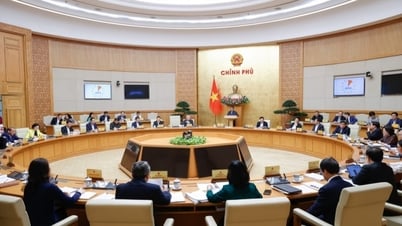

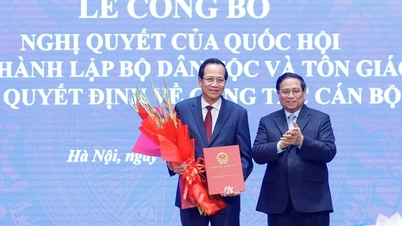








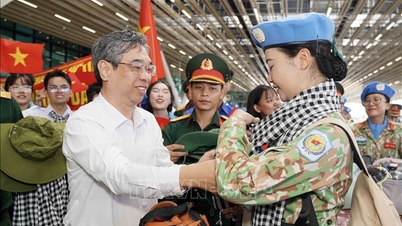












![[Photo] Binh Thuan organizes many special festivals on the occasion of April 30 and May 1](https://vphoto.vietnam.vn/thumb/1200x675/vietnam/resource/IMAGE/2025/5/1/5180af1d979642468ef6a3a9755d8d51)

![[Photo] "Lovely" moments on the 30/4 holiday](https://vphoto.vietnam.vn/thumb/1200x675/vietnam/resource/IMAGE/2025/5/1/26d5d698f36b498287397db9e2f9d16c)



































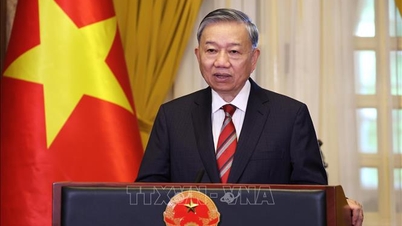
















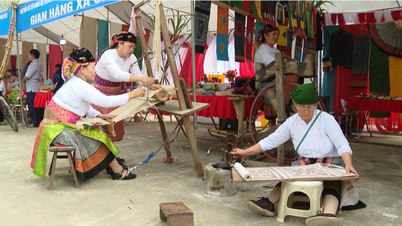










Comment (0)